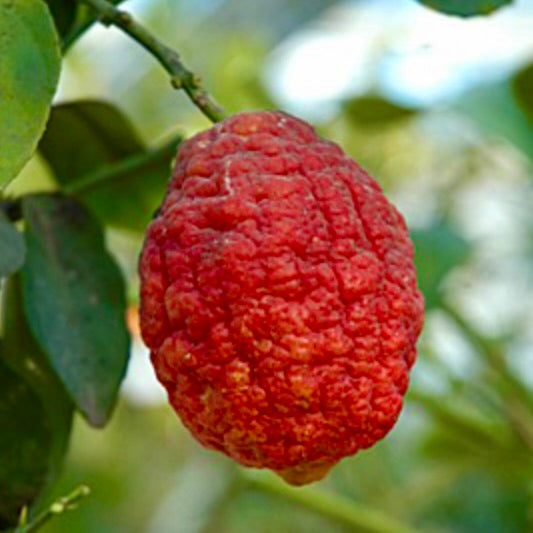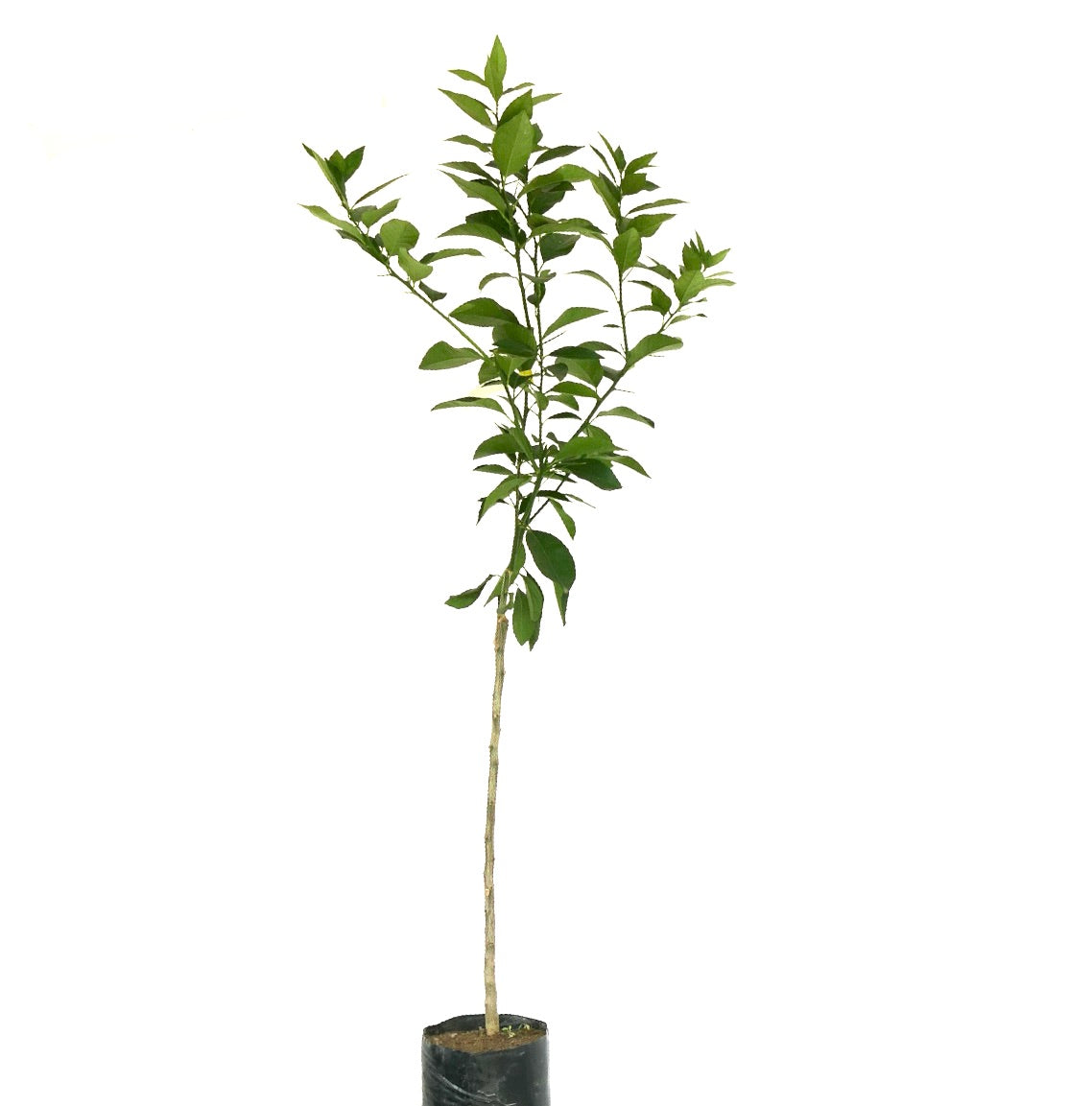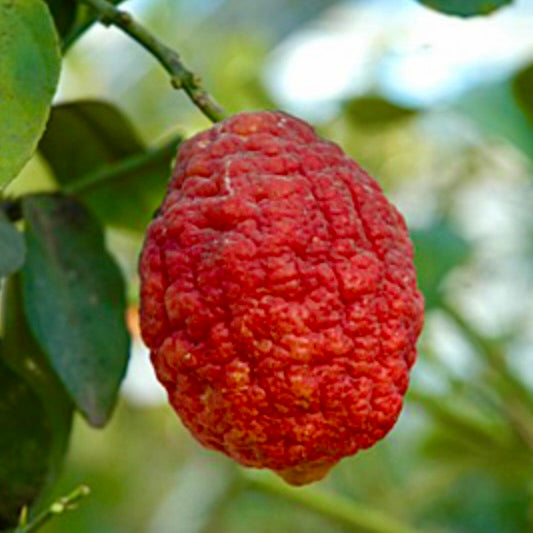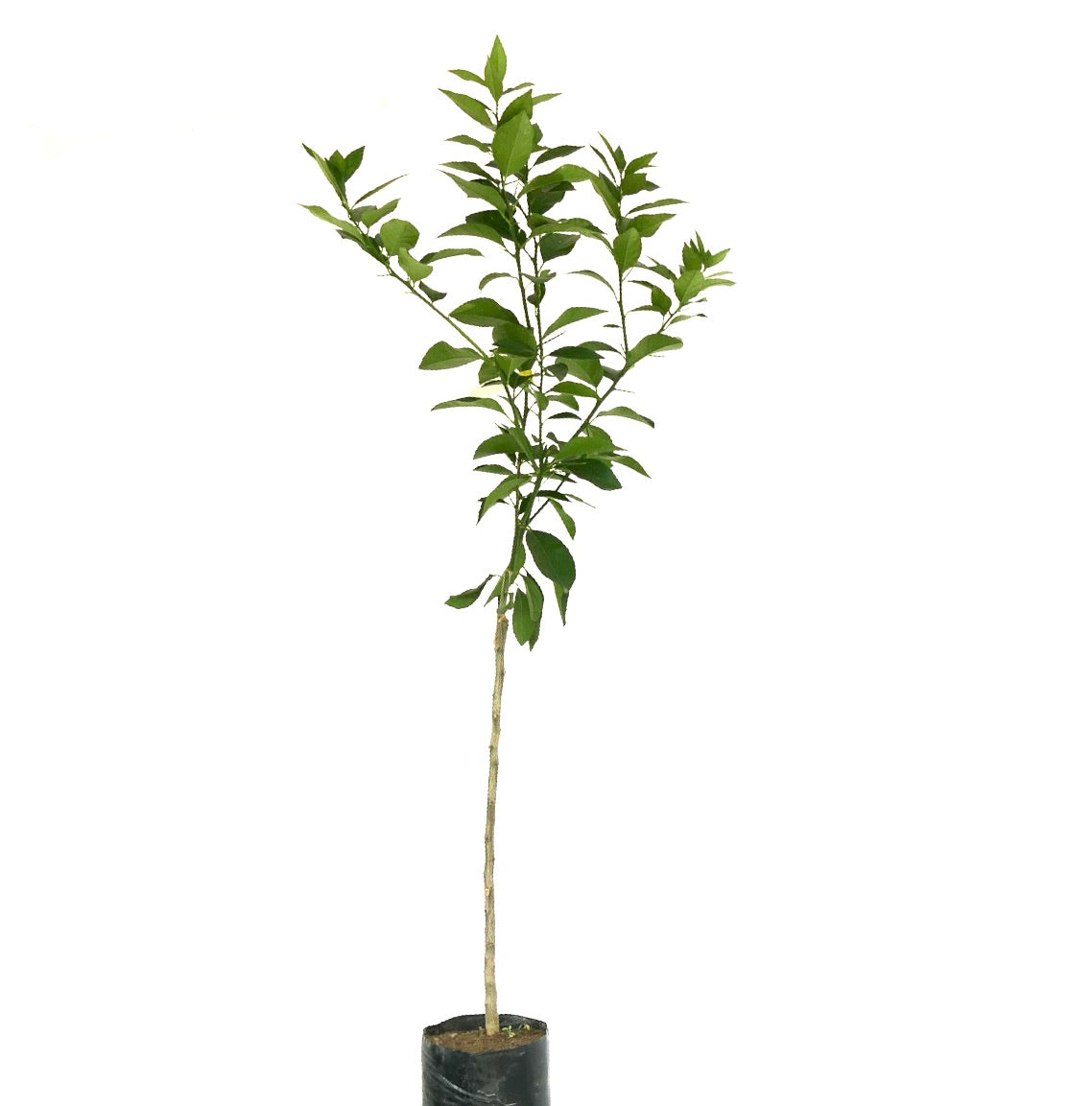Citrus limon cv ETNA (extra red fruits) 130-150cm
Citrus limon cv ETNA (extra red fruits) 130-150cm
Couldn't load pickup availability
Product Description
Citrus limon cv Etna, is a Sicilian red fruit cultivar cultivar of Citrus limon, commonly known as the lemon tree, is a fruit-bearing tree that belongs to the Rutaceae family. It's widely cultivated for its tart, flavorful fruits, which are a staple in cuisines around the world. Here are some key details about the lemon tree and its cultivation:
Characteristics of Citrus limon
- Appearance: Lemon trees are evergreen, with glossy, oval leaves and often have thorns on the branches. The leaves are aromatic when crushed.
- Size: They typically grow to a height of about 3 to 6 meters (10 to 20 feet), though they can grow taller.
- Flowers: The tree produces fragrant flowers that are white with a tint of pink. These can appear singly or in small clusters.
- Fruits: Lemons are bright yellow when ripe, with a thick skin and sour, acidic pulp. They are rich in vitamin C and are used for their juice, zest, and as a flavoring agent in a variety of dishes.
- Growth Habit: Lemon trees can bear fruit all year round, but the main season for fruiting is winter to early spring.
Cultivation and Care
- Climate: Lemon trees thrive in warm, sunny climates. They are sensitive to cold and can be damaged by frost. They are best suited to USDA zones 9-11.
- Sunlight: Full sun is essential for healthy growth and fruit production.
- Soil: They prefer well-draining, slightly acidic to neutral soil. Poor drainage can lead to root rot.
- Watering: Regular watering is important, especially during the warmer months. However, the soil should be allowed to dry out between waterings to prevent over-watering.
- Pruning: Pruning is used to shape the tree, remove dead or diseased wood, and encourage fruit production. It's typically done after the main harvest.
- Fertilization: Lemon trees benefit from regular feeding with a nitrogen-rich fertilizer. Additional supplements of phosphorus and potassium can also be beneficial.
- Pests and Diseases: Common issues include citrus canker, scale insects, and aphids. Regular monitoring and appropriate treatments are important.
- Container Growing: Lemon trees can be grown in containers, making them suitable for patios and balconies. Container-grown trees require more frequent watering and feeding.
Lemon trees not only provide delicious fruits but also add ornamental value to gardens and outdoor spaces with their lush foliage and fragrant flowers. They are a popular choice for home gardens, especially in regions with suitable climates.
IMPORTANT: Picture 1 show fruit, Picture 2 show an example plant like the one you will receive.
Please be aware that most plants change across seasons. For example, some of them will naturally lose leaves or change in colour during colder months. Do not hesitate to contact us for further informations about the plants of your interest.
Cultivation
Cultivation
Info and Disclaimers
Info and Disclaimers
Plant height: 130-150cm
Pot diameter:
Picture taken on:




